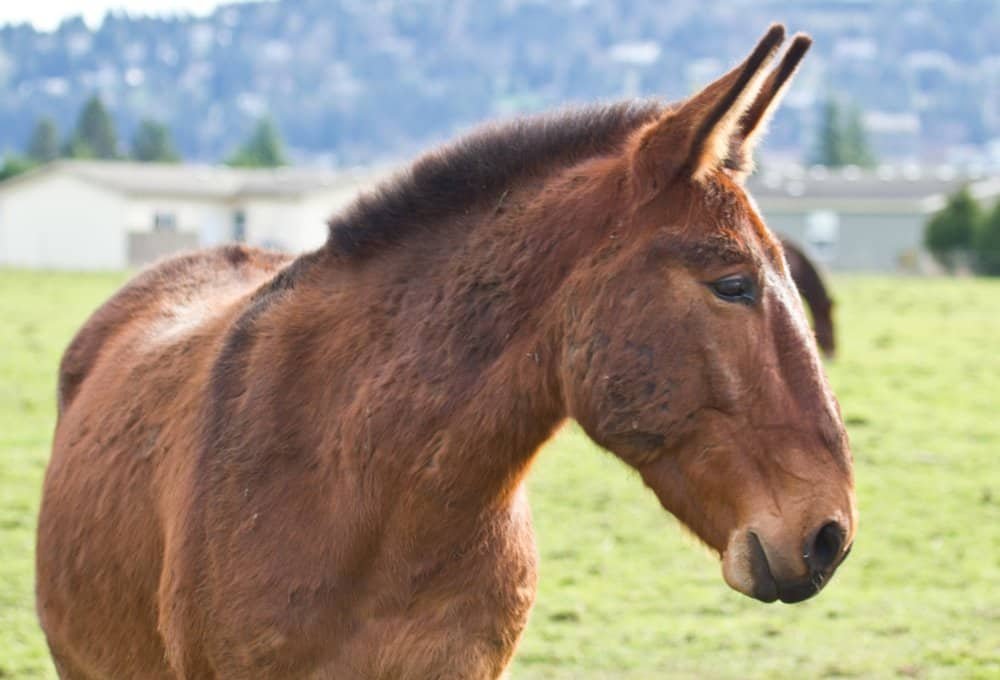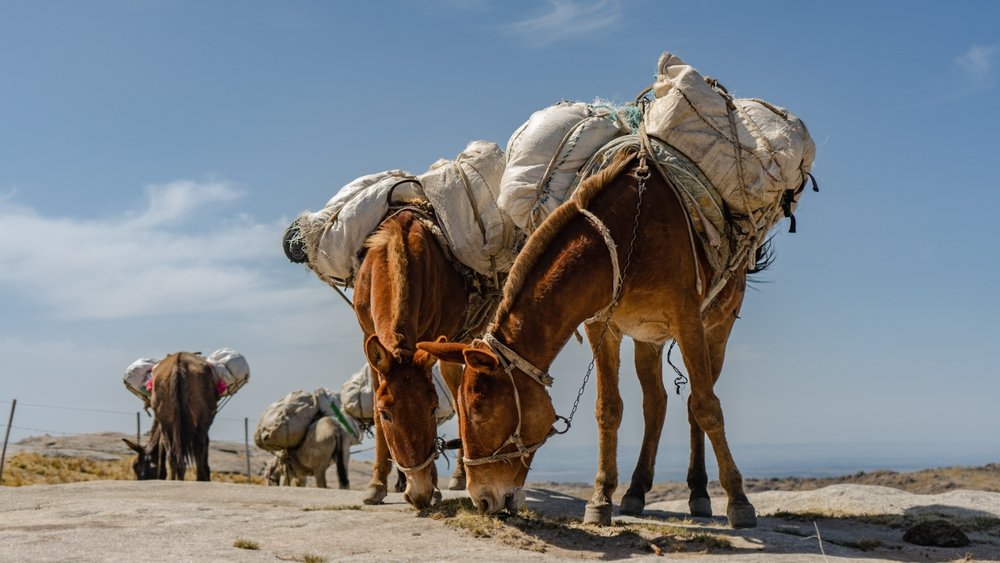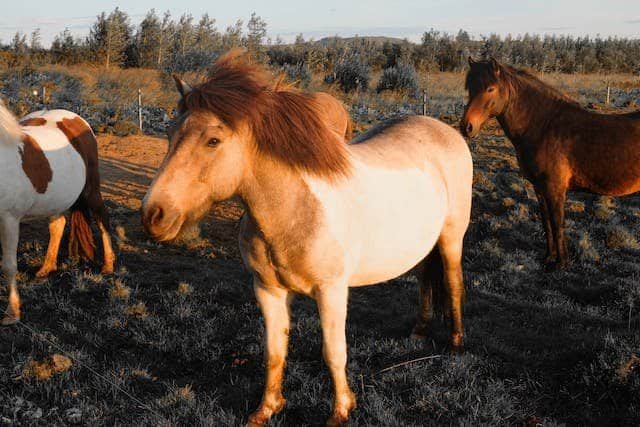Mules are hybrid animals that are a result of crossbreeding between a male donkey and a female horse. They possess the strength and endurance of a horse, along with the intelligence and temperament of a donkey. These unique characteristics make mules popular working animals for tasks such as farming, transportation, and even military use.
If you are thinking about getting a mule as a pet or for work purposes, you might be wondering: how long do mules live? The lifespan of mules can vary depending on various factors such as genetics, environment, and care.
Table of Contents
Where Do Mules Come From?
The history of mule breeding can be traced back to ancient civilizations in Egypt and Rome. However, the first documented crossbreeding between a horse and donkey took place in 1522 by King Henry VIII of England. This practice became more widespread in the United States during the 19th century due to the high demand for reliable working animals.
Factors That Affect A Mule’s Lifespan
- Genetics: As with any living being, genetics play a significant role in determining the lifespan of a mule. A mule’s lifespan is a combination of the average lifespan of its donkey and horse parents, which can range from 20 to 40 years.
- Environment: The environment in which a mule lives also impacts its longevity. Mules that are kept in suitable living conditions with proper nutrition and care tend to live longer than those who lack these essential factors.
- Care: Similar to any animal, mules require proper care and attention to thrive. Regular veterinary check-ups, vaccinations, and a well-balanced diet can significantly impact their lifespan.
How Can You Help Your Mule To Live Longer?

Mules can live an average of 30 to 40 years, but with proper care, they can even surpass this age. Here are some ways you can ensure your mule lives a long and healthy life:
- Provide Adequate Shelter: Mules require shelter from extreme weather conditions such as heat, cold, and rain. A well-ventilated barn or shelter with clean bedding can provide them with the necessary protection.
- Feed A Balanced Diet: Mules are herbivores, and their diet should consist mainly of hay, grass, and grains such as corn and oats. Consult a veterinarian for specific dietary recommendations for your mule based on their age, weight, and activity level.
- Regular Veterinary Check-ups: Regular check-ups can help detect any health issues early on and prevent them from becoming more severe.
- Exercise: Regular exercise is essential for a mule’s physical and mental well-being. It helps them maintain a healthy weight, strengthens their muscles, and provides mental stimulation.
What Is The Actual Height Of A Mule?
Mules’ height can vary depending on the size of their horse and donkey parent. On average, mules stand between 12 to 17.5 hands (120 to 180 cm, or 50 to 70 inches) in height, which is slightly shorter than a horse but taller than a donkey.
What Is The Weight Of A Mule?
The weight of a mule can also vary depending on their genetics and living conditions. On average, a mule can weigh between 800 to 1,000 lbs (362 to 455 kg).
What Is The Average Lifespan of a Mule?
On average, mules live for around 30 to 40 years. However, some have been known to live up to 50 years. The oldest recorded mule, “Old Billy,” lived to be 62 years old in the 19th century. Some factors that can impact a mule’s lifespan include its genetics, nutrition, healthcare, workload, and living conditions.
Importance of understanding mule lifespan
Knowing how long mules live is crucial for anyone considering owning or working with these animals. Mules are long-term commitments, and understanding their lifespan can help in making informed decisions about their care and well-being.
Additionally, a mule’s lifespan can also give insight into its overall health and quality of life. If a mule is not living up to its expected lifespan, it could be a sign of underlying health issues that need to be addressed.
How Long Do Mules Live? Longest Recorded Mule Lifespan

There have been some notable examples of mules living well beyond that age. The oldest recorded mule in history was a mule named Old Billy, who lived to be 62 years old before passing away in 1822 in England. Another mule, named Lucky Lady, lived to be 55 years old before passing away in 2002 in the United States.
Why Do Mule Live Longer Than Other Donkeys?
Mules have a longer lifespan compared to their donkey counterparts due to their hybrid vigor. Hybrid vigor refers to the increased health and vitality of offspring resulting from the crossbreeding of two different species or breeds. This phenomenon has been observed in various animals, including mules.
How Long Do Mules Live In The Wild?
Mules do not occur naturally in the wild as they are a result of human breeding. However, feral mules have been found living in the wild for up to 20 years. Their lifespan in the wild can vary depending on various factors such as food availability, predators, and environmental hazards.
How long Do Mules Live in The Captivity?

Mules living in captivity can have a longer lifespan compared to those living in the wild. With proper care, mules can live for an average of 30 to 40 years and sometimes even longer. Providing them with adequate shelter, nutrition, exercise, and medical care can help ensure they live a long and healthy life.
Caring for Older Mules
As with any animal, caring for an older mule requires special attention and care. Older mules may have difficulty maintaining weight, so a proper diet and regular veterinary check-ups are crucial. Senior mules also need to be monitored for joint pain and other age-related issues.
Current Status Of Mule’s Lifespan
With advancements in veterinary care and nutrition, mules’ lifespan has increased significantly over the years. With proper care, mules can live well into their 30s and sometimes even longer. However, it is important to remember that each mule’s lifespan may vary depending on various factors.
Conclusion
In conclusion, the lifespan of a mule can vary depending on factors such as genetics, environment, and care. With proper care and attention, these intelligent and hardworking animals can live for up to 40 years or more. If you are considering getting a mule, make sure to provide it with a suitable living environment and give it the care and attention it needs for a long and healthy life.
Read Also: How Long Do Miniature Donkeys Live?





